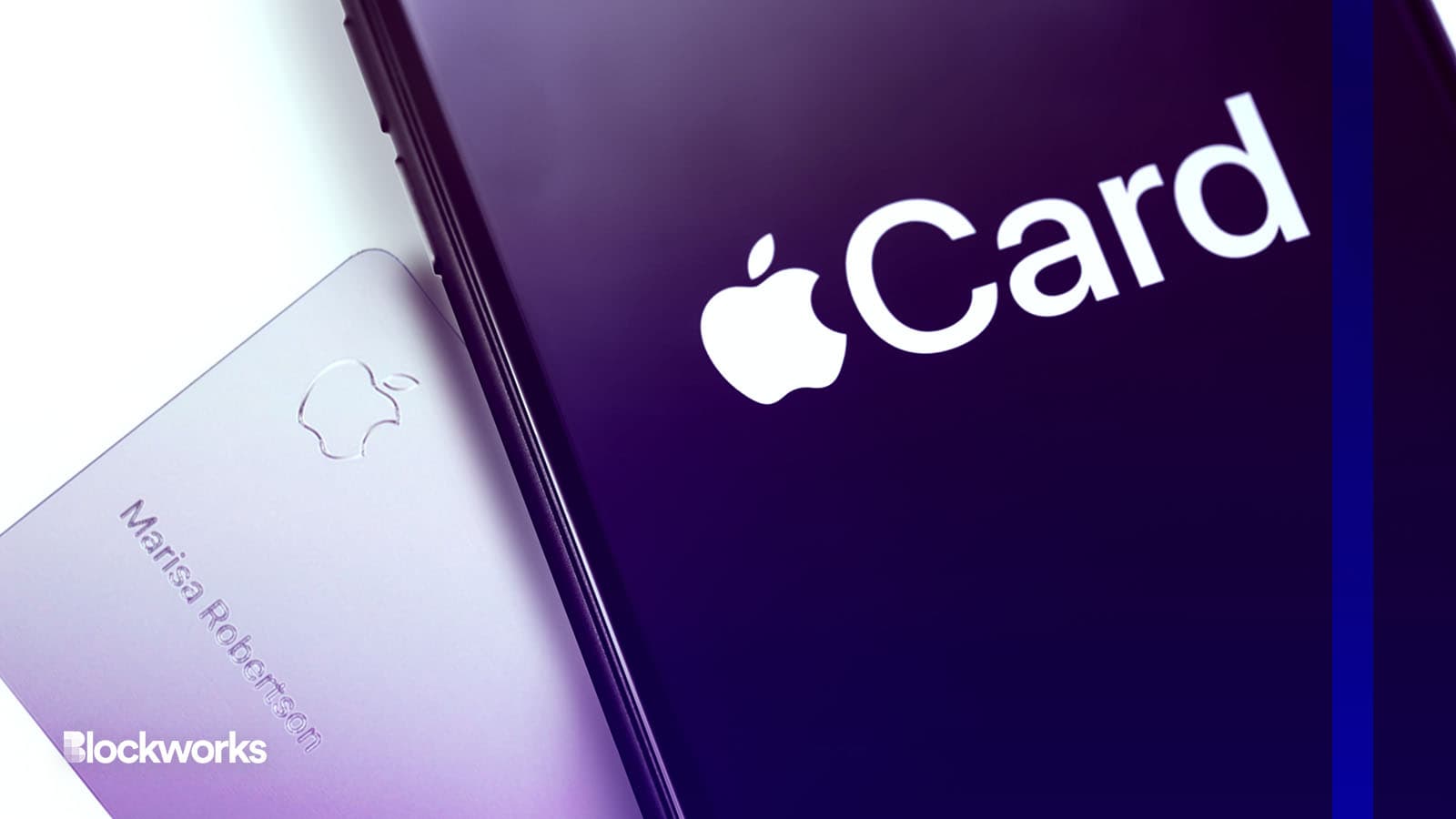How Does Apple Card’s New Savings Account Compare to Crypto?
Apple’s new savings account for Daily Cash offers a 4.15% APY, but crypto products offer higher rates

Source: Shutterstock / Primakov, modified by Blockworks
Apple just released a new high-yield deposit account in partnership with Goldman Sachs, and users are already excited that it promises a better rate than most banks. But what about crypto and DeFi?
The feature enables Apple Card users to grow their Daily Cash rewards — the cashback rewards for using the card — by placing them in a savings account that offers an annual percentage yield (APY) of 4.15%.
Apple’s rate is more than 10x the national average, Apple said, citing data from the Federal Deposit Insurance Corporation. Users can set up their savings accounts with no minimum deposits and no minimum balance requirements.
For comparison, Coinbase offers up to 6% APY on staking certain assets including ETH, Tezos or Cosmos. Bybit also offers up to 6% APY on staked ETH.
But those are volatile crypto assets for which some of the yield can be a result of token inflation. It’s not an apple to Apple comparison.
Limiting a search for crypto yields to stablecoins, we can find Crypto.com offering 4.5% on USDC, DAI and USDT, with a 3-month lockup, but only if customers additionally stake a balance of the exchange’s CRO token.
DeFi has the advantage of global permissionless access, but basic savings yields are generally lower than those from Apple’s product, although the latter is currently available to only US-based users.
Borrowing and lending protocols Aave and Compound have variable supply rates currently around 2%, according to defiprime, while relative newcomer Notional Finance, offers fixed rate lending of DAI and USDC at between 5.9% and 6% with a 3-month term.
Apple’s offering is more flexible and benefits from FDIC insurance, while DeFi alternatives are uninsured by default. To protect against certain smart contract risks, via insurance protocol Nexus Mutual, will set you back about 1.5-2% annually for Compound and Aave. And there is currently no capacity available to insure Notional Finance positions.
Aside from its global reach, with no need to jump through any hoops to open an account, DeFi has one other feature users may appreciate: deposits can simultaneously be used as collateral to borrow.
For instance, a USDC deposit on Compound can be used to borrow ETH which can then be staked elsewhere to earn a return. That can make the yields available more competitive, but also introduces complexity, such as the need to monitor collateral ratios to ensure there’s no risk of liquidation and to take on additional smart contract risk.
Apples to others comparison
Rick McCracken, a Cardano stake pool operator, said on Twitter that it was hard to pass up on Apple’s 4.15% APY as he was already using Apple cashback.
“Now I have to see if I am earning better returns on my crypto rewards on the Coinbase card or if this [Apple] deal is better,” he said.
Apple Card users don’t have to rely only on their cashback rewards as a base to grow their returns. They can also add money to this savings account directly from an existing bank account, meaning you can transfer a chunk of funds if you wish to do so.
“Our goal is to build tools that help users lead healthier financial lives, and building Savings into Apple Card in Wallet enables them to spend, send, and save Daily Cash directly and seamlessly — all from one place,” Jennifer Bailey, vice president of Apple Pay and Apple Wallet, said in a statement.
Apple’s announcement follows customers deciding to move their funds from smaller lenders to banking giants after the failures of Signature Bank and Silicon Valley Bank.
Although Apple’s product doesn’t provide the highest available APY, it is useful for those who already have Daily Cash from their use of Apple Card. Still, Apple warned that the APY may change at any time.
For those new to crypto, finding yields competitive to Apple’s savings product, without taking degen-like risks, is a challenge — especially in a macro environment where 3-month Treasury bonds are at 5%. But the DeFi landscape is evolving fast, and consumer-focused offerings with low fees and features like built-in insurance are sure to follow.
Get the news in your inbox. Explore Blockworks newsletters:
- The Breakdown: Decoding crypto and the markets. Daily.
- 0xResearch: Alpha in your inbox. Think like an analyst.






